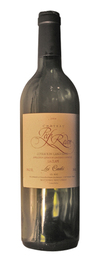
Wine & the PMF rule of healthful drinking

Friends,
The Bible mentions wine a lot. Consider:
- Prov. 20:1; Wine is a mocker, strong drink a brawler, and whoever is led astray by it is not wise.
- John 2:9-10; When the master of the feast tasted the water now become wine, and did not know where it came from (though the servants who had drawn the water knew), the master of the feast called the bridegroom and said to him, “Everyone serves the good wine first, and when people have drunk freely, then the poor wine. But you have kept the good wine until now.”
- Rom. 14:21; It is good not to eat meat or drink wine or do anything that causes your brother to stumble.
- Eph. 5:18; And do not get drunk with wine, for that is debauchery, but be filled with the Spirit
- 1 Tim. 3:8; Deacons likewise must be dignified, not double tongued, not addicted to much wine…
- 1 Tim. 5:23; No longer drink only water but use a little wine for the sake of your stomach and your frequent ailments.
Wine is present in our worship service each week. Wine is more and more prevalent in our culture. And yet, many who imbibe grew up without any real positive teaching or examples of how to receive and enjoy drink (and food) with thanksgiving and wisdom. And it can be difficult to find an appropriate “balance.” When should or should not one drink? How much is appropriate? How often? What is healthy?
Recently I ran across an article in Bon Appetit that struck me as particularly interesting and helpful in terms of questions like these. Read the article here & let me know what you think.
Bill
Thanks for sharing this article — I’m a fan of Mireille’s writing! Moderation is key and something I’m still working on with both food and wine. I’m much too fond of the taste of things and don’t pay attention as I ought. Gluttony tends to prevail.
“When not to drink” is another area where attention/sensitivity are key. We’ve just returned from a “dry” church and had one instance in a fellowship group at an Italian restaurant when we wished we had known alcoholic beverages (in this case, a great Pinot Noir) were not to be ordered. We felt badly afterward that we unknowingly didn’t follow policy. Apparently the congregation is populated with recovering alcoholics, and the body is very sensitive to that, which is understandable.
We are grateful for the freedom to enjoy wine here at All Saints, and also wish to do no harm to our weaker brothers.
My mother just gave me a copy of Andrea Immer Robinson’s book, Great Wine Made Simple. She is one of the world’s few female sommeliers and has written a down-to-earth guide to wine. I’ve just started it and can’t wait to taste my way through it.
We look forward to your next posting.
I think the author sums up a healthy way to enjoy wine well. I share Jill’s struggle with gluttony. I wonder if I would have a better view of wine and drink in general, if I had learned to enjoy it, rather than just consume it. I think I tend to view drinking anything(water, tea, coke, coffee, beer, wine, or liquor) as a means to an end. Whether that end be satisfaction, hydration, a buzz from alcohol, or a pick me up, is irrelevant. I rarely stop to enjoy my drink for what it is, rather I use it. It sounds weird to talk about ‘using’ liquids in a negative light, but I think there may be something common about my ‘use’ of things rather than my ‘enjoyment’ of them.